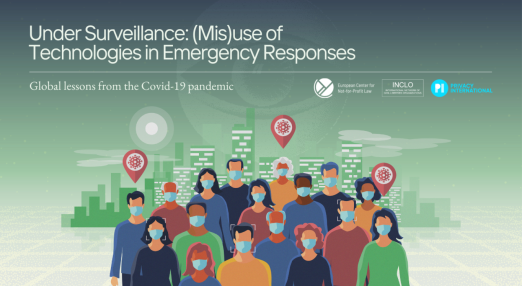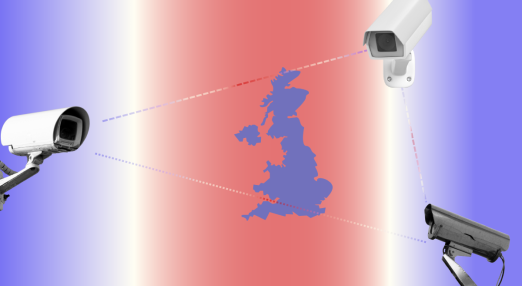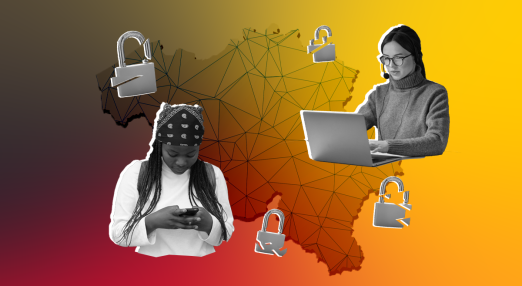Privacy
Filter by...
-

Under surveillance: (mis)use of technologies in emergency responses
In the months following the beginning of the COVID-19 pandemic, more than half the world’s countries enacted emergency measures. Within this broader context, we have seen a rapid scaling up of governments’ use of technologies to enable widespread surveillance. How has this impacted civil society groups globally?
Read more
-

Update: UK’s Online Safety Bill heralds a trio of surveillance
The UK’s Online Safety Bill was back in the Westminster Parliament in December It had been stalled for five months whilst the new British government made a few changes. A Parliamentary debate on Monday (5 December 2022) revealed the shift in policy direction for the first time. It’s a relatively small change with big implications. Read more about the changes.
Read more
-

EdTech needs schooling
It is vital that the introduction of technology to the classroom is accompanied by appropriate and robust human rights safeguards to ensure that every child around the world can safely access an education, without giving up their right to privacy or becoming hostages to a future of data exploitation. Read why EdTech needs schooling to ensure the safety of the children they are responsible for.
Read more
-

GDPR Rights in Sweden: Court confirms that authority must investigate complaints
The Stockholm administrative court held that a complainant under Article 77 GDPR has the right to request a decision from the Swedish Data Protection Authority (IMY) after six months.
Read more
-

Advocate General recklessly calls for watering down privacy protections
On 27 October, the Advocate General (AG) Szpunar of the Court of Justice of the European Union (CJEU) released his opinion on the French ‘HADOPI’ system against online copyright infringements. The case has potentially important implications for the ongoing political debate on data retention by private companies for access by law enforcement authorities.
Read more
-

Activists v. Poland. European Court of Human Rights hearing on uncontrolled surveillance
On 27 September, the hearing was held at the European Court of Human Rights, following the application against Poland lodged by activists from Poland’s Panoptykon Foundation and Helsinki Foundation for Human Rights, joined by a human rights attorney.
Read more
-

Chat Control – A good day for privacy
The Austrian parliament voted in its EU committee to adopt a resolution that has a binding effect on the position of the Austrian government not to agree to the proposal for the controversial child sexual abuse regulation, if it is not brought in line with fundamental rights.
Read more
-

Foreign authorities are banning Google and Microsoft services from schools, the Czech Republic is floundering
Jan Cibulka, a journalist for iROZHLAS and member of the Big Brother Awards CZ Jury, organised by EDRi member Iuridicum Remedium, has investigated how Czech authorities and schools are approaching the protection of privacy when using distance learning tools. Such tools send sensitive information overseas, where US law gives intelligence agencies access to it. The tools do not guarantee that children's private chats will not be accessed by, for example, teachers. While the first regional governments in Europe are developing safer alternatives, in the Czech Republic the risk assessment remains up to individual schools. In practice, they have little choice.
Read more
-

Does Google accuse you of child abuse? Impossible! Right?
The legislator in Europe is working on a proposal that could force companies to scan all messages we exchange for child sexual abuse material. The goal is noble but it can very easily go wrong. And if things go wrong, you might suddenly be accused of sexually abusing children.
Read more
-

Gmail creates “Spam Emails”, despite CJEU judgment
On 24 August, EDRi member noyb.eu filed a complaint against Google with the French Data Protection Authority (CNIL). The tech giant has repeatedly ignored the European Court of Justice (CJEU) ruling on direct marketing emails and used its email platform Gmail to send unsolicited advertising emails without valid consent of the users.
Read more
-

WFH – Watched from Home: Office 365 and workplace surveillance creep
In the past few years, the pandemic and the shift to working from home have bolstered the use of remote surveillance software to monitor employees. In 2020, global demand for employee monitoring software increased 108 per cent by April and 70 per cent by May 2020 compared to pre-pandemic times. At the same time, search engine queries for "How to monitor employees working from home" increased by 1,705 per cent in April and 652 per cent in May 2020 compared to the previous year.
Read more
-

Belgium’s data retention law must not undermine people’s right to privacy
Belgium's Parliament will soon vote on the draft law on the collection and retention of identification data and metadata in the electronic communications sector and the provision of such data to authorities. This draft law, as it is and if adopted without adequate adjustments, would pose a threat to people’s rights, such as the right to privacy and data protection, freedom of expression and information, press freedoms and professional secrecy guarantees, and would potentially set a dangerous precedent for other Member States.
Read more
